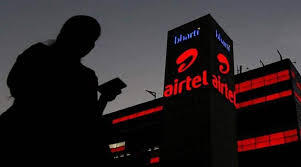Auhona Roy Chowdhury, Pune
In an announcement on Aug. 15, Bharti Airtel revealed that it is currently entangled in a series of legal battles involving claims amounting to a staggering ₹45,286.76 crore. These litigations are spread across various courts throughout India and involve both the company itself and its subsidiary entities.
Among the litigations, the most substantial claim stands at ₹15,178 crore, primarily revolving around one-time spectrum charges (OTSCs). This financial demand was initially presented by the Department of Telecommunications (DoT) in January 2013. Initially pegged at ₹5,201.2 crores, the sum was revised to ₹8,414 crores in 2018. Bharti Airtel, however, has contested this claim and has sought judicial intervention.
In its regulatory filing, the company explicitly stated, “The company challenged the demand notice of ₹5,201.2 crores dated January 8, 2013 (revised to ₹8,414 crores in 2018), issued by the Department of Telecommunications towards one-time spectrum charge. The Bombay High Court, through orders on January 28, 2013, and October 4, 2019, granted interim protection to the company. The matter is currently pending adjudication.”
The second-largest claim in this series of legal disputes pertains to a claim of ₹4,439 crore filed by a subscriber of the company. This particular case has remained unresolved before the National Consumer Disputes Redressal Commission (NCDRC), located in New Delhi. In response to this claim, Airtel firmly asserted that the complainant’s demands, including damages and penalties, were unsubstantiated. They pointed out that the complaint lacked legal validity, given the precedent established by the Supreme Court in a similar call-drop case.
Delving into the details of the other ongoing litigations, the telecom giant conveyed that it has taken up the challenge against another demand notice issued by DoT, this time amounting to ₹1,050 crores. This demand arises from an allegation of violating quality of service regulations due to congestion at points of interconnection (POIs). The imposition of this penalty was influenced by the recommendation of the telecommunications regulatory authority, Trai, based on a complaint lodged by Reliance Jio.
In response, Airtel emphasized its adherence to regulations and agreements, affirming, “The company has provided POIs to the other TSPs (telecom service providers) strictly in compliance with TRAI QoS (Quality of Service) regulation, Interconnect Agreements between the parties, and the license conditions.” It’s worth noting that the Telecom Disputes Settlement and Appellate Tribunal (TDSAT) has directed DoT not to enforce the bank guarantee until the matter has been thoroughly examined.
As these litigations continue to unfold, Bharti Airtel remains resolute in its legal challenges against the claims, asserting its compliance with regulations and seeking just resolutions in the ongoing cases.
